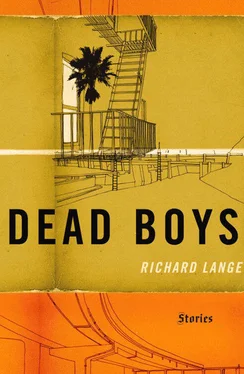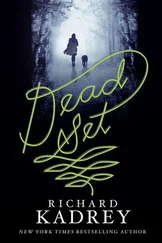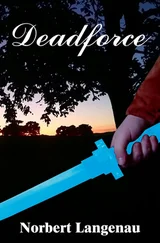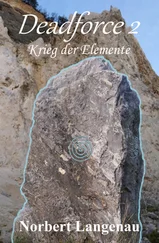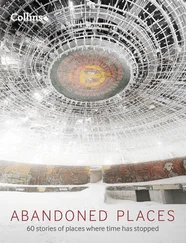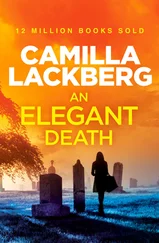THE HOUSES IN her neighborhood all looked alike: square, flat-roofed little bungalows the color and texture of after-dinner mints. I drove around the block a few times, smoking and noticing the bars on the windows and how some people pulled their cars right up into their yards. She had a lawn, though, and there was a waist-high chain-link fence to separate it from the sidewalk. I made sure to latch the gate behind me.
I could hear the TV through the door when I rang the bell. It took a while for her to answer. Her dark hair was cut short and combed like a boy’s, and she had green eyes. I thought maybe I had the wrong place. There wasn’t much of Bud about her.
“Yes,” she said, like she was expecting trouble.
“I’m looking for Kate, Bud Herman’s daughter.”
“That’s me.”
“He. . he died last week.”
“I heard.”
She opened the screen door. A little girl with the same green eyes came up behind her and peeked at me around her legs. I wished I’d worn nicer clothes, maybe my tie.
“I was asked to deliver these. His ashes. He wanted you to have them.”
Kate glanced down at the urn, then looked back up at me with a smile.
“Is that ridiculous or what?” she said.
I smiled, too, and shrugged. A car alarm went off a few houses away. “People put them on their mantels,” I said.
She laughed out loud at that and brought her hand up to cover her mouth. There was a ring on every finger. “The mantel, huh. Well, all right.”
I wanted to keep her laughing. The sound had a sweetness to it that cut through everything. The little girl stared up at her, puzzled, as Kate took the urn.
“Thanks,” Kate said. “Really.”
I turned sideways and pointed at the grass with my thumb. “Nice yard.”
“It’s a little shaggy.”
“Do you have a mower?”
I don’t know what Bud had intended by having her take charge of his ashes, but it suddenly seemed to me a very weak gesture. It took a few minutes of convincing, but she eventually led me to the garage. I fired up the lawnmower and went to work.
There were two squares of grass separated by a concrete walkway that ran from the gate to the house. I cut one square, then the other, then started over. Sweat ran down my face, and I thought about taking off my shirt but decided against it. The little girl stood on the porch the whole time with her fingers in her ears, watching.
When I finished, Kate gave me a 7 Up. We stood in a sliver of shade between the garage and the house. She uncoiled a hose and watered the flowers planted there. A hummingbird flickered above us like some strange gift, and I thought, “Summer. Wow,” remembering yards and hoses and cold drinks that had been lost to me for years.
“Tell your husband the mower needs gas,” I said.
“He left months ago,” she replied without looking at me. “But you already guessed that.”
She was right. I had.
BILL CUT HIS finger scrounging cans from recycling bins. He kept taking off the gauze he’d wrapped around it to show all of us in the doughnut shop the flash of bone that could be glimpsed when he pulled the edges of the wound apart.
“It’s my pussy finger,” he said over and over. “Ain’t that a bitch.”
“You best look after that,” José advised.
I joined the circle gathered around the table where Whitey was taking on a walk-in. It was a ten-dollar blitz match, five minutes on each clock, and Whitey already had his opponent’s queen and both bishops. The chess played there was a million miles away from the solemn, sedate pastime I’d always associated with Persian rugs and smoking jackets. The doughnut shop crew had picked up the game in jails and psych wards. You didn’t take pieces, you killed them, the object being complete annihilation. Kamikaze assaults were the norm, and there was always money at stake, even if it was just the price of a cup of coffee.
Whitey darted in and out, eating pawns just for the hell of it and foiling every attack his opponent mounted. The walk-in was a gigantic Samoan who scowled down at the board as we urged Whitey on. “Whack that fucker,” someone yelled. “Off with his fucking head.” In the end, the Samoan’s king stood alone, surrounded by black marauders. The Samoan reached across the table and shook Whitey’s hand, then left without a word.
The guys drifted outside to smoke or to the counter for refills, and Whitey motioned me into the empty chair across from him while he arranged the pieces for another game.
“How’d it go?” he asked.
“Nice girl,” I replied.
“She cry or anything? Was it a scene?”
“Not at all.”
Whitey always knew the right thing to do or say, but only because he’d spent his whole life making mistakes. It seemed a high price to pay for wisdom — a ruined liver, a bullet nestled against his spine, a family broken and lost along the way. I hoped I’d somehow stumble upon a shortcut.
The Dodgers were on the radio, ahead by two in the bottom of the eighth. It was still hot outside. I could feel it when I pressed my palm to the window. The smell of freshly mown grass clung to me.
“Ready for a lesson?” Whitey asked, leaning back in the chair and rubbing his neck.
Bud had been teaching me the game before he died. Every night he’d walk me through a match, slapping my hand when I reached for the wrong piece. I had the basic moves down and a few dirty tricks under my belt, but it never meant as much to me as it did to Bud. I just liked to see the light in his eyes when I finally picked up something he’d been drilling me on.
“Sure,” I said to Whitey.
“I’m a different breed of player than Bud was, a little more tactical. I actually read a few books.”
“So I’ll have the best of both worlds, right?”
“That’s right. Good. Why don’t we start with a few openings.”
Outside, Bill poured whiskey on his finger and howled and jumped up and down like an angry coyote in a cartoon.
THE NIGHTCLUB ACROSS the street from the doughnut shop opened at nine o’clock. I arrived at 9:05 in order to beat the line. It was just me and the bartender for the first hour. Louise, originally from Nebraska. She didn’t want to talk about it, though. She didn’t want to talk about anything. The place was smaller than I’d imagined. The walls were painted black, and there was no door on the bathroom stall.
I stuck to beer as more and more people showed up and the music grew louder. The bass bounced in my chest like a second heart. It was difficult to get a good look at anyone, the way the lights flashed and wobbled. Faces bloomed and faded and dropped away before I could draw a bead. I kept telling myself something good would happen, but wasn’t quite sure what I was expecting. The thing I was most afraid of was appearing desperate. A girl danced alone in a dark corner of the club. She knew the words to every song, even the Mexican ones. I came up with fifteen ways to introduce myself to her, but all of them turned my stomach.
Last call came as a shock. I wanted one more drink, but when I reached into my pocket, I discovered I was out of money. It was useless to ask Louise to cut me some slack. She’d given away my stool when I’d gone to the men’s room, and to get it back I’d had to mad-dog the squatter, who turned out to be her boyfriend. The girl in the dark corner, though, we’d exchanged a few glances, so I walked over and offered to write her a check for double the cost of a shot and a beer. She made a sort of clawing motion at my eyes and then put her hands over her ears and yawned. Sirens wailed and the house lights came up and bouncers started throwing people out. Everybody looked like they were about to cry.
LUCKILY, KATE SMILED when she came to the screen door and saw me standing on her porch. I don’t know what I would have done if she hadn’t. Such presumptuousness was out of character for me, and I hoped my showing up unannounced wouldn’t frighten her.
Читать дальше
